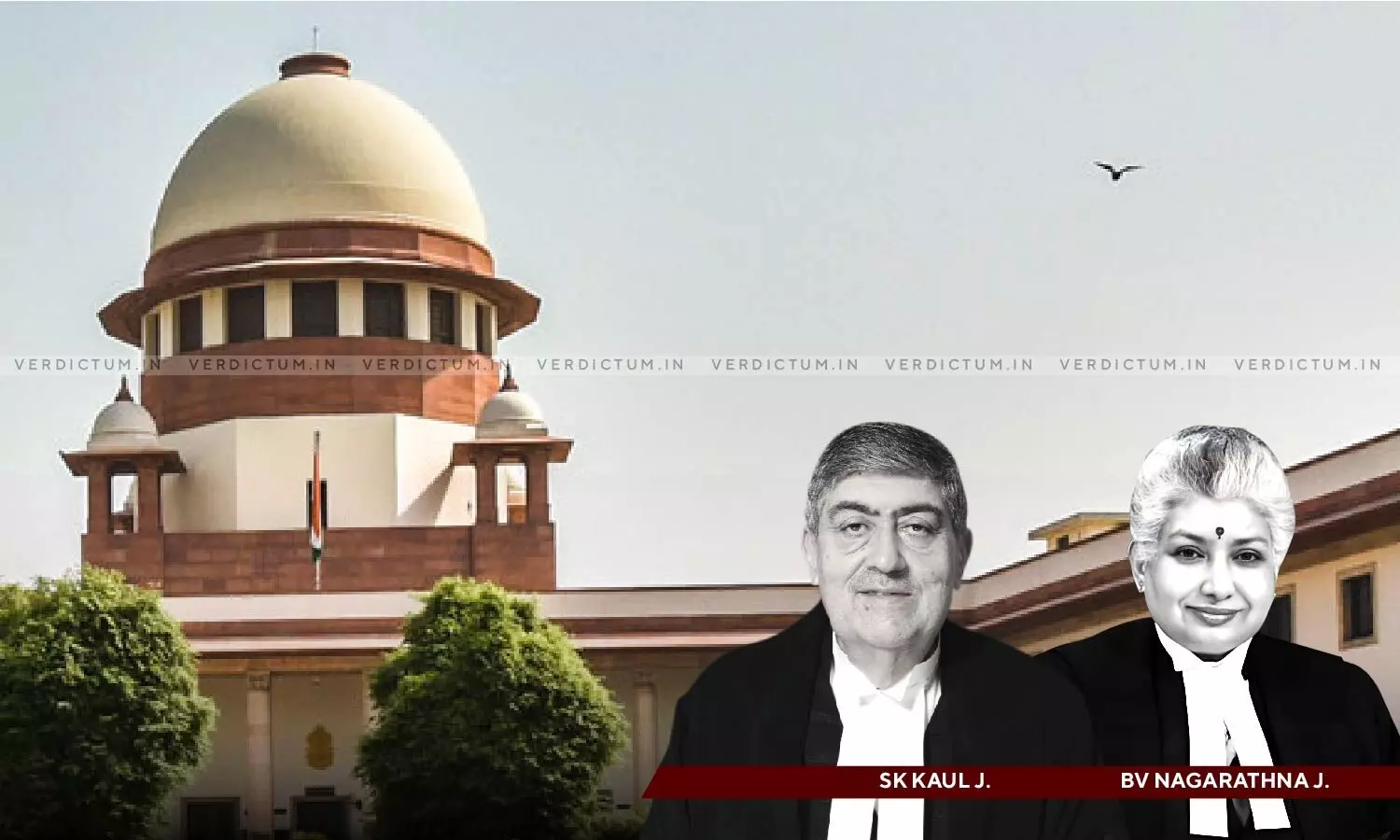
Punishment Of Death Or Life Imprisonment Needs Higher Evidentiary Value- SC While Reducing Charges In Kidnapping Case
 |
|A Supreme Court Bench of Justice Sanjay Kishan Kaul and Justice BV Nagarathna has reduced the charge and punishment in a kidnapping case from charges under Section 364A of the IPC to charges under Section 363 of the IPC.
In that context, it was observed that "If the sentence carrying a maximum sentence of death and a minimum sentence of life sentence has such a low evidentiary threshold, the difference between punishments for kidnapping under 363, 364 and 364A shall become meaningless."
Counsel Gaurav Agrawal was appointed by the Supreme Court Legal Services Committee and appeared for the appellants. AAG Rakesh Mudgal appeared for the State.
In this case, an appeal was filed by five accused persons whose convictions were confirmed by the Punjab and Haryana High Court. The appellants were accused of kidnapping a 14-year-old boy and demanding ransom from his parents.
The appellants contended that they were falsely implicated and that there was grave doubt that the appellants were the same people who had kidnapped the child.
The point of consideration before the Supreme Court was whether the facts of the case attract the offence under Section 364A (kidnapping for ransom which is punishable with death or imprisonment for life) of the IPC. Further, if the answer was negative, whether it would be just and proper to modify the conviction to a sentence under Section 363 (punishment for kidnapping for a term up to seven years and fine) of the IPC.
The Court perused the Judgment given by the Apex Court in the case of Sk. Ahmed vs. State of Telangana, and noted that Section 364 of the IPC has three stages or components, which are:
i. kidnapping or abduction of a person and keeping them in detention;
ii. threat to cause death or hurt, and the use of kidnapping, abduction, or detention with a demand to pay the ransom; and
iii. when the demand is not met, then causing death.
With regard to the facts of the case, the Court observed that three crucial changes were noticed in a pivotal witness statement. In that context, it was said that "three crucial changes may be noticed: first, a change in the exact timing of the threat; second, the specificity of the delivery of the threat to kill; and third, omission of the intent behind the threat".
In furtherance of the same, the Court held that "These details are crucial to proving the second ingredient of the charge under Section 364A and essential to bring home the guilt under this section namely, threat resulting in giving rise to a reasonable apprehension that such person may be put to death or hurt. It is clear that this ingredient has not been proved beyond reasonable doubt. The Courts below did not thoroughly address this doubt before convicting the appellants. For proving the ingredient of threat, the intimidation of the child victim, for the purpose of making him silent, cannot be enough. If the sentence carrying a maximum sentence of death and a minimum sentence of life sentence has such a low evidentiary threshold, the difference between punishments for kidnapping under 363, 364 and 364A shall become meaningless."
Therefore, the Apex Court allowed the appeals in part and set aside the conviction under Section 364 of the IPC. The appellants were convicted for the offence under Section 363 of the IPC and were sentenced to imprisonment for seven years and a fine of Rs.2000/-.
Cause Title: Ravi Dhingra v. The State of Haryana
Click here to read/download the Judgment